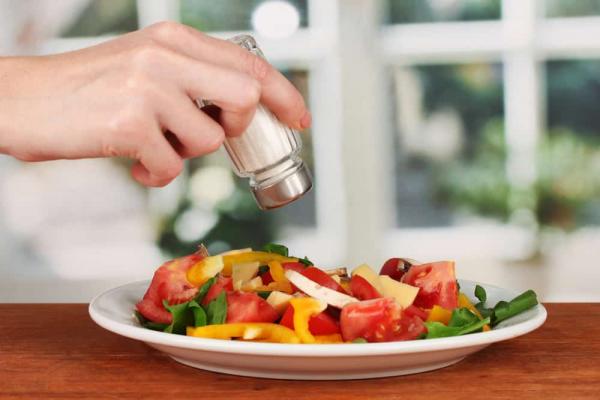
Salt is an essential part of a healthy lifestyle. However, too much salt can lead to many health problems including high blood pressure, cardiovascular disease, water retention and more. August 29 is More Herbs, Less Salt Day. This day is designed to encourage individuals to watch their salt intake and avoid consuming excess salt in their daily diet. It is a day to begin adapting a healthier lifestyle in our families and prevent future health problems from occurring later in life.
However, limiting your salt intake is much harder than it sounds. Americans should consume between 1,500 mg to 2,300 mg of salt each day. Unfortunately, many foods contain your entire salt intake in just one serving. Below are five ways you can help limit your family's salt intake and enjoy a healthier lifestyle.
1. Avoid processed and fast food
Cooking your meals from home is one of the best ways to limit your salt intake. Fast foods are often covered in salt, especially the beloved French fries. Additionally, many processed foods contain an excess amount of salt to preserve the foods.
If your family is constantly on the go and frequently turns to fast foods and processed foods for meals, create a menu that includes low-sodium meals each week. This will help you have a plan and make it much harder to quickly grab something to eat. It also makes it easier to prepare food in advance.
2. Use spices
Many individuals have a hard time limiting their salt intake because they like the flavor salt adds to their food. You can still have a delicious meal without excess sodium by using a variety of spices. Fresh herbs are excellent additions to any meal. Basil, ginger, oregano, pepper and more are excellent additions to many foods. Using herbs and spices can create a much more satisfying and healthier meal.
3. Avoid the added dash of salt
For a few days, track your salt intake and see how much salt you consume on a daily basis. You may be surprised how much sodium you are actually consuming. In fact, 2,300 mg of salt is approximately one teaspoon of salt. Many individuals sprinkle that much salt over just one meal. Instead of using salt on your fruit, eat it fresh. Avoid pouring salt into a pot of boiling water to help it boil faster. Avoid using salt in all of your meats, sauces and more. You will gain your recommended amount of salt from other means, there is no reason to keep adding more and more.
4. Buy fresh and limit canned goods
Eating fresh ingredients, especially fruits and vegetables is an excellent way to limit your salt intake. Even canned fruits and vegetables contain an excess amount of salt to preserve the item. When possible, eat fresh. Also, plan your meals so they include fresh ingredients. Be smart about what you eat and plan ahead to make it easier to control what you consume.
5. Take it slow
If you know that you consume too much salt each day, don't try to make a drastic cut in just one day. After some time, your body will crave the salt and you will go back to your old habits. You need to slowly make small cuts in your eating habits. Instead of eating potato chips at lunch, munch on carrots to receive that crunch you desire. Or, begin to buy low-sodium foods and read all of the food labels and check the sodium intake before you buy them. Also, if you are making a recipe and the food doesn't necessarily need salt, don't add it. Just because it calls for a dash of salt, you likely won't notice it is missing.
Salt is essential in your diet, but it can also be the cause of many health problems. By limiting your salt intake, you can enjoy a much healthier lifestyle and avoid many future complications.

